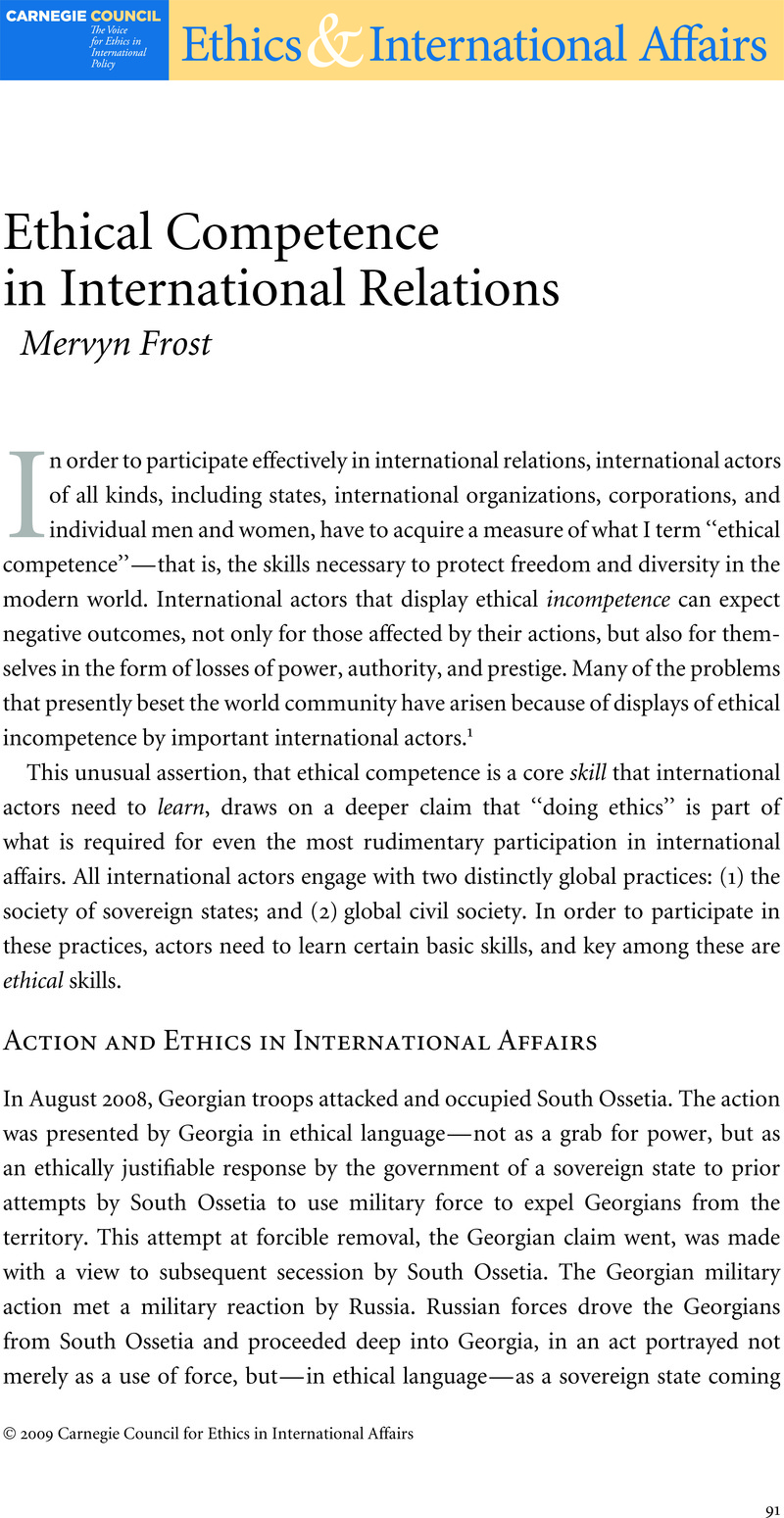Published online by Cambridge University Press: 25 March 2011

1 It would be a useful exercise to investigate the reasons for this loss of competence, but I do not have the space to do so in this article. A more complete argument for the centrality of ethics to a full understanding of contemporary international relations is set out in my book Global Ethics: Anarchy, Freedom and International Relations (New York: Routledge, 2009).Google Scholar
2 On constitutive theory in general, see Frost, Mervyn, Ethics in International Relations: A Constitutive Theory (Cambridge: Cambridge University Press, 1996).CrossRefGoogle Scholar
3 Because what is being described here is a set of relationships internal to a practice, it may seem as if there is an element of circularity here, but this circularity is not different from that found in the following assertion: the fundamental value realized through participation in a democracy can only be had through participating in a democracy.
4 For a list of these, consult Centre for Human Rights, Human Rights: A Compilation of International Instruments (New York: United Nations, 1988).Google Scholar
5 For a defense of this kind of claim being made by states, see Agamben, Giorgio, State of Exception (Chicago: University of Chicago Press, 2005).CrossRefGoogle Scholar